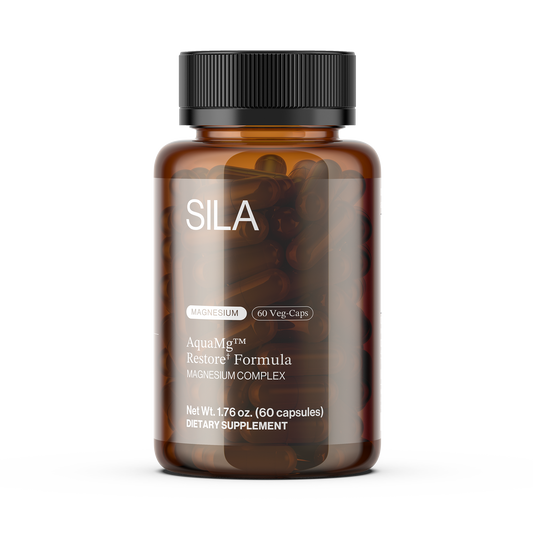For physically active individuals, maintaining optimal magnesium levels can enhance performance and recovery. Magnesium-rich diets or supplements may particularly benefit those with suboptimal baseline levels. These findings support the inclusion of magnesium supplementation in performance-focused nutritional strategies.
Magnesium (Mg) is an essential mineral pivotal to numerous physiological processes, including energy production, muscle contraction, and nerve transmission. Its role becomes particularly critical during physical activity, where metabolic demands are heightened. A recent review by Zhang et al. (2017) comprehensively examined the relationship between magnesium and exercise performance, revealing its potential to enhance physical capabilities by supporting energy metabolism, muscle function, and recovery. The findings suggest that magnesium supplementation may improve key performance metrics such as muscle strength, endurance, and functional mobility, especially in populations with suboptimal magnesium levels.
Cross-sectional studies indicate positive correlations between magnesium status and parameters like grip strength, lower-leg power, and knee extension torque. Randomized controlled trials corroborate these findings, showing significant gains in muscle torque and improvements in mobility-related outcomes such as gait speed and chair-stand times among elderly participants. Mechanistically, magnesium’s ability to regulate glucose availability and lactate metabolism during exercise highlights its role in sustaining energy and delaying fatigue.
Despite variability in study outcomes due to differences in baseline magnesium levels and supplementation protocols, the evidence underscores magnesium's potential as a critical component of performance-focused nutritional strategies. This article delves into the findings presented by Zhang et al. (2017), exploring the mechanisms and implications of magnesium in exercise performance, and provides insights into how it can be leveraged to support both athletic endeavors and overall physical well-being.
Magnesium's Impact on Physical Performance
Human studies summarized in the review highlight magnesium's significant role in supporting muscle strength and functional performance. Cross-sectional data demonstrate a positive association between magnesium levels and measures such as grip strength, knee extension torque, and lower-leg power. For example, elderly participants in the InCHIANTI study exhibited stronger muscle performance when serum magnesium concentrations were higher, even after adjusting for age, body mass index, and physical activity levels.
Intervention studies provide additional evidence. A randomized controlled trial examining the effects of magnesium supplementation on quadriceps strength found that participants who received supplementation showed a notable increase in muscle torque, improving from 2.38 ± 0.80 to 3.07 ± 0.92 Nm/kg, compared to a lesser gain in the control group, which increased from 2.35 ± 0.43 to 2.58 ± 0.43 Nm/kg. Such findings underscore magnesium's ability to bolster muscle performance, particularly in scenarios where magnesium intake may be insufficient.
Beyond strength, magnesium has been shown to enhance functional outcomes in older populations. In a 12-week study involving elderly women, magnesium supplementation led to measurable improvements in gait speed (Δ = 0.21 ± 0.27 m/s) and chair-stand times (Δ = −1.21 ± 1.86 seconds), outperforming the control group in both metrics. These results suggest that magnesium plays a vital role in maintaining mobility and reducing functional decline with age.
Mechanisms Supporting Exercise Performance.
Magnesium contributes to exercise performance primarily through its role in energy metabolism. It forms complexes with adenosine triphosphate (ATP), the body's primary energy molecule, facilitating efficient energy release during muscle contraction. Additionally, magnesium helps regulate glucose and lactate levels during physical activity. By ensuring a steady glucose supply and managing lactate accumulation, magnesium supports sustained energy output and delays the onset of fatigue.
Conclusions
The evidence presented in Zhang et al. (2017) underscores magnesium's vital role in enhancing exercise performance. By supporting energy metabolism and muscle function, magnesium helps individuals achieve better physical outcomes, whether in strength, endurance, or recovery. Ensuring sufficient magnesium intake through diet or supplementation offers a practical and effective strategy for optimizing physical performance. This simple yet powerful intervention holds potential benefits not only for athletes but also for anyone seeking to maintain an active, healthy lifestyle






